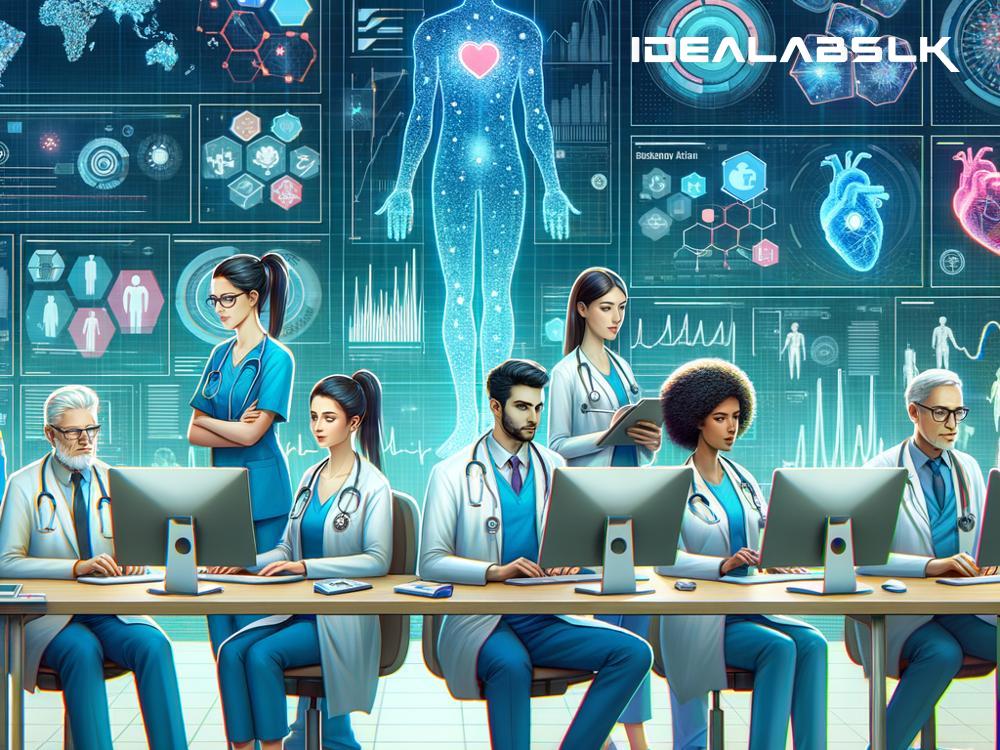Unraveling the Magic behind AI in Predictive Healthcare: Simplified
The integration of Artificial Intelligence (AI) in healthcare has been nothing short of a revolutionary wave, drastically changing how we foresee and manage health issues. The concept might sound like a page taken from a sci-fi novel, but it's very much a reality today. Have you ever wondered how AI makes these once-thought-impossible tasks manageable? Let's delve into the world of AI and its role in predictive healthcare, breaking it down into simple terms that anyone can understand.
The Basics of AI in Healthcare
At its core, AI in healthcare refers to the use of complex algorithms and software to emulate human cognition in the analysis, interpretation, and comprehension of complicated medical and healthcare data. But don't let the term 'complex algorithms' scare you. Imagine AI as a very diligent student that never tires, learning and improving from health data to make predictions or decisions without direct human input.
The Crux of Predictive Healthcare
Predictive healthcare is like having a crystal ball that gives us insights into what health issues might arise in the future. It relies on data, lots of it, to forecast health outcomes or diseases before they happen. The goal is straightforward - to prevent diseases before they start or to manage existing conditions before they become severe. This proactive approach can save lives, reduce healthcare costs, and make treatment more effective.
How AI Powers Predictive Healthcare
1. Learning from Data
AI systems in healthcare work by learning from vast amounts of data – this includes medical records, genetics, environmental factors, and lifestyle choices, to name a few. These systems use machine learning, a subset of AI, to find patterns and insights in the data. It's akin to connecting the dots but on an incredibly advanced scale.
2. Making Predictions
Once the AI system has learned from the data, it can start making predictions. For example, it could predict which patients are at higher risk of developing a certain disease based on their health records and other variables. Think of it as a highly advanced weather forecast, but instead of predicting rain or sunshine, it's predicting health outcomes.
3. Personalizing Treatment Plans
AI doesn't stop at predictions. It goes a step further by helping healthcare providers create personalized treatment plans. Since everyone's body reacts differently to treatments, what works for one person might not work for another. AI analyzes individual patient data to recommend the most effective treatment plans. It's like having a custom-made suit, but for healthcare.
4. Monitoring and Adjustments
AI technologies are also instrumental in monitoring patients' health in real-time, especially those with chronic conditions. They can send alerts if a patient's health data show signs of potential trouble, allowing for swift action. Moreover, AI can adjust treatment plans based on new data, ensuring patients always receive the most effective care.
The Benefits of AI in Predictive Healthcare
The benefits of leveraging AI in predictive healthcare are profound:
- Early Detection: Identifying diseases early can significantly increase the chances of successful treatment.
- Preventative Care: By predicting health issues before they occur, we can take steps to prevent them, leading to healthier lives.
- Personalized Medicine: Tailoring treatment to individual needs makes care more effective and can reduce side effects.
- Efficiency and Cost Reduction: Automating routine tasks frees up healthcare professionals to focus on more critical tasks, reducing overall healthcare costs.
Navigating Challenges
While AI in predictive healthcare brings numerous advantages, it's not without its challenges. Data privacy concerns, the need for large and diverse data sets to train AI models, and the importance of bridging the gap between AI predictions and practical healthcare applications are areas requiring careful navigation.
In Conclusion
AI in predictive healthcare is transforming the medical landscape. By harnessing the power of AI, we're not just reacting to diseases; we're anticipating them, preparing for them, and, in some cases, preventing them altogether. The advancements in AI offer a beacon of hope for more effective, efficient, and personalized healthcare solutions. While there are hurdles to overcome, the potential benefits make it a journey worth undertaking for the future of healthcare. Whether it's the early detection of diseases or the personalization of treatment plans, AI's role in predictive healthcare is undeniably paving the way for a healthier tomorrow.

